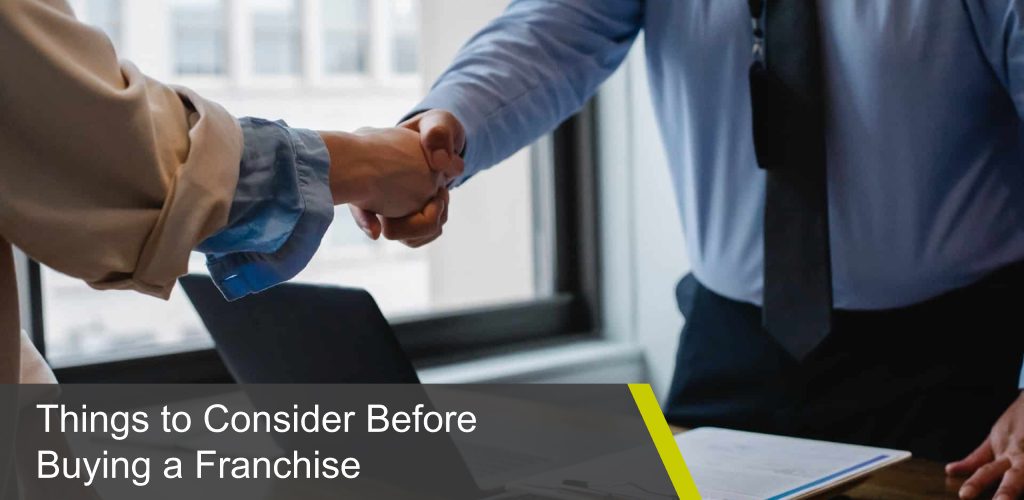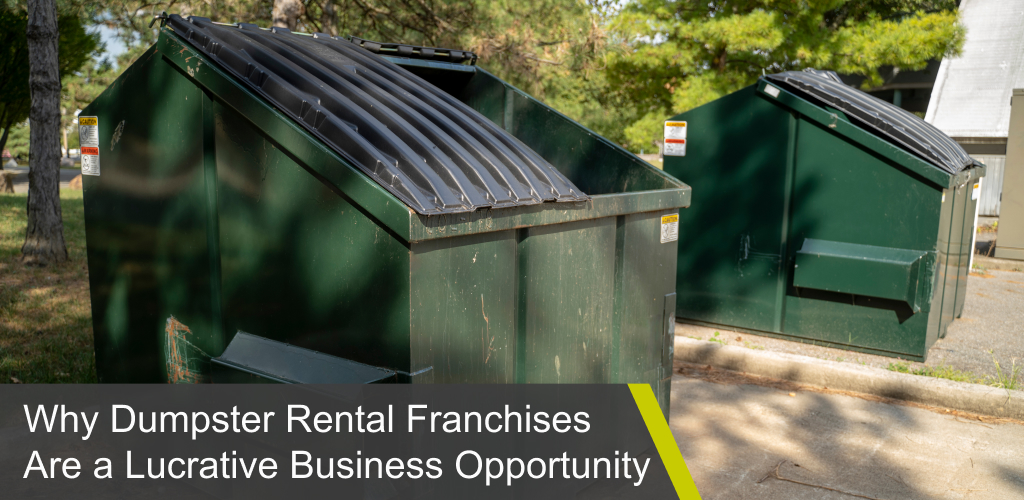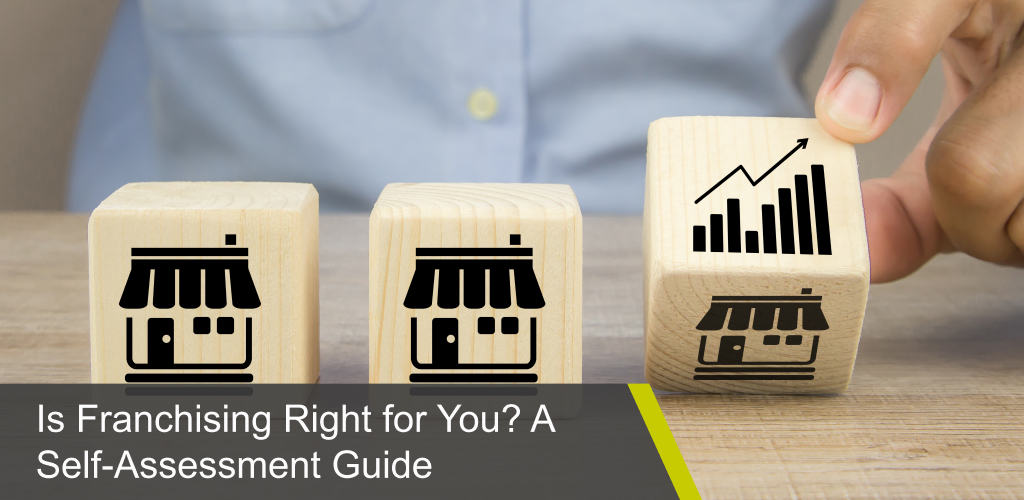Things to Consider Before Buying a Franchise

Just like with any business, starting your own franchise is a major investment and a huge life decision. Therefore, becoming a franchisee and choosing a franchisor are two decisions that should not be made lightly.
In fact, there are so many different factors that every prospective franchisee must take into consideration before signing a franchise agreement. To help you navigate this new journey, we have listed all of the most important things you should consider before buying a franchise. Keep reading to find out what they are.
What Does it Mean to Buy Into a Franchise?
When you buy a franchise, you are known as a franchisee. What this means is that you own and operate your own franchise business but do so under the name and branding of your franchisor. You must pay the franchisor an upfront franchise fee along with ongoing royalty fees, and in exchange, the franchisor offers training and ongoing support. The fees also enable you to use the franchisor’s name and branding.
Things You Should Consider Before Investing in a Franchise
As we mentioned before, there are so many factors to take into consideration before investing in a particular franchise. It’s critical that you carefully examine all of the factors listed below and make sure you fully understand what is required from you and the franchisor before signing any contracts.
What Kind of Training and Support Does The Franchisor Offer
A perk of owning a franchise is that the franchisor typically offers on-site training and ongoing support to help ensure your franchise is successful. However, every franchisor is different, and the amount of training and support varies from franchisor to franchisor. It’s crucial that when you are researching franchisors, you ask about how much training and support they offer.
Look for franchisors that will provide you with the following:
- A business plan
- In-person training
- Marketing guidance
- Research and development programs
- Ongoing support by phone or video chat
How Much You Are Required to Pay in Fees
Franchisees must pay two types of fees to their franchisor – a franchise fee and a royalty fee.
A franchise fee is a one-time fee paid up-front to the franchisor in exchange for the use of its branding, systems, support, and training.
This fee varies depending on the franchisor but typically ranges between $10,000 to $100,000.
Royalty fees are ongoing and paid out monthly, weekly or quarterly and are typically 4% to 12% of your gross sales. They can also be a fixed amount.
How Much Control and Restrictions Are Imposed by the Franchisor
When operating a franchise, you are typically required to follow the franchisor’s rules, procedures, and systems. However, some franchisors lack flexibility and can be a bit restrictive when it comes to the day-to-day operations of their franchisees. Such restrictions can include coming up with your own marketing strategies or introducing new products or services.
As a franchisor, it’s important that you have lots of freedom and flexibility to run your business as you see fit, within reason. Find out what kind of restrictions a franchisor places on its franchisees by asking the franchisor directly and speaking with the franchisee.
What the Franchise Agreement Looks Like
When you invest in a franchise, you must sign a contract called a franchise agreement. It’s critical that you review the terms of the franchise agreement carefully with the help of an experienced franchise lawyer to make sure that the agreement is favourable to you and will not impact you negatively.
Also, be sure to carefully review the franchisor’s Franchise Disclosure Document (FDD) carefully with your lawyer.
An FDD is a legal document that includes information about the Franchisor‚ including:
- Important business information
- Start-Up Costs
- Fees that you will be required to pay
- A list of franchisees
- How many franchises have been recently established
- How many franchises have recently closed
The FDD must be provided by the franchisor at least 14 days before the franchise agreement is executed or the franchise fee is paid.
Is There a Demand For a Particular Franchise?
Before you open your franchise, do some market research and find out if there is demand for that type of business in your area. Also, make sure there aren’t multiple other businesses that are similar to your franchise within close proximity. Some franchisors offer territorial exclusivity, but others don’t so be sure to ask about this.
Can You Afford the Start-Up Costs?
It’s no secret that starting your own business is very expensive. While starting a franchise is typically less expensive, it still requires you to invest tens of thousands in start-up costs. In fact, most new franchisees spend an average of $100,000 to $300,000 in start-up costs. It’s important to make sure that you either have this kind of money upfront or are able to secure a loan to cover these costs.
The Franchisor’s Success Rate
A franchisor’s track record is one of the most important factors to consider when choosing a franchise to invest in. Do your research and find out how many franchise locations have gone out of business after less than five years in business and how many have remained in business after five years.
Also, look into:
- The franchisor’s business record and reputation
- How other franchisees feel about the franchisor
- Any lawsuits the franchisor is involved in
- How many years the franchisor has been operating for
Partner With Gorilla Bins
If you haven’t yet found the right franchisor to partner with, consider Gorilla Bins.
Gorilla Bins is Ontario’s leading waste management franchisor and already has several locations across the Greater Toronto Area.
Gorilla Bins offers its franchisees lots of training and support and has a proven track record of success, having tripled its revenue over the past five years.
Get in touch with our team today to learn more about Gorilla Bins and how we can help set your franchise up for success.













